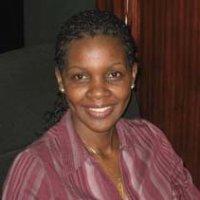
From the Global WACh blog
As part of our commitment to meaningful research collaborations, Global WACh offers Integrated Health Seed Grants: one-year of seed funding for pioneering research to improve the health of women, adolescents, and children. The proposals we award recognize a global focus on community advocacy and innovative exploration.
In 2011 we awarded the seed grant to Dr. Linnet Masese, who at the time was a doctoral student at the UW Department of Epidemiology, and Clinic Section Head at the UW/University of Nairobi Research Site in Mombasa. Her original proposal was to explore the feasibility of Chlamydia trachomatis screening among adolescents and young women in Kenya. However, with nucleic acid amplification testing locally available at the UW Research Laboratory in Mombasa, she expanded the study to include screening for Neisseria gonorrhoeae and Trichomonas vaginalis. We are thrilled to report that the first of three papers from this study titled “Barriers and Facilitators of Screening for Sexually Transmitted Infections in Adolescent Girls and Young Women in Mombasa, Kenya” was recently published in PLOS One.
Dr. Masese’s work centers around one of the earliest reproductive health challenges faced by young women as they become sexually active: the risk of sexually transmitted infections (STIs). Young women bear the greatest burden of STIs as they face significant barriers to STI screening. Through focus group discussions and in-depth interviews, Dr. Masese and her study team identified the barriers to STI screening among adolescent girls and young women in Mombasa, Kenya. Based on findings from this qualitative study, they developed a screening intervention for adolescent girls and young women in Mombasa.
As a center dedicated to fostering new discovery and career development, we couldn’t be happier to support this research achievement in Mombasa and we look forward to following the improvements in sexual health education and STI screening as a result of your work.